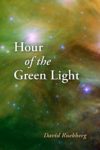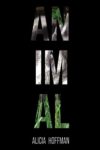- Albert Abonado is the author of Jaw, an NEA fellowship recipient, and a recent winner of the 2023 National Poetry Series award. He and Jonathan Everitt host the bi-weekly New Ground Poetry open mic.
- Jessica Cuelo won the 2022 Eugene Paul Nassar Prize from Utica University and the 2020 Barrow Street Book Prize.
Posts tagged as “poetry”
Writer’s Block: Is there such a thing? William Stafford’s solution was to ignore "high standards" and "get into action." Exercising our writing muscles without fear of “doing it wrong” helps prepare us for the moment when the “big poem” wants to be born. In this workshop we’ll play with ways to move through the doldrums and dread, including journaling, experimenting with forms, collaborating, and more.
Although the focus will be on poetry, strategies for "getting unstuck" apply to all manner of writing.
Meets four Mondays, July 18 through August 8.
Registration deadline: Friday, July 15
Tuition
- YMCA of CNY member = Free!
- Syracuse Downtown Writer's Center member = $60
- Non-Member = $80
- Click here to register online.
- Click here to view the catalog and register by phone.
- Course description is on page 3.
- Payment directions are on page 6.
- Registration form is on page 7.
- Register by phone with a credit card by calling (315) 474-6851 x380.
- If you must pay by check, please call first to reserve your place, then return your form with check payable to "YMCA" to:
- The YMCA’s Downtown Writers Center, 340 Montgomery St., Syracuse, NY 13202

Image is often thought of as a picture in the mind, although any sensory experience counts. Ezra Pound defined image as “that which presents an intellectual and emotional complex in an instant of time.” It’s the flash of epiphany—what makes us go “Ah!”
And yet poems are made of sentences, or parts of sentences--one word after another. In this class we’ll look at the way words, lines, and sentences prepare the way for moments of increased awareness. Through discussion and brief written commentary you will observe how poets as diverse as John Keats, Yehuda Amichai, Brigit Kelly, Reginald Dwayne Betts, and others wrangle with this interplay.
Participants will generate new writing and discuss it in workshop in the same way we discuss published work: noticing how it’s working, rather than “fixing” other people’s poems. First rule of workshop feedback: Respect.
Meets eight Tuesdays, April 26 through Tuesday, June 14
Registration deadline: April 20
Tuition
- MCA of CNY member = $150
- Syracuse Downtown Writer's Center member (and members of other YMCAs) = $116
- Non-Member = $155
- Click here to view the catalog.
- Payment directions are on page 4.
- Registration form is on page 6.
- Register by phone with a credit card by calling (315) 474-6851 x380.
- If you must pay by check, please call first to reserve your place, then return your form with check payable to "YMCA" to:
- The YMCA’s Downtown Writers Center,
- 340 Montgomery St., Syracuse, NY 13202
Join David Ruekberg, author of Hour of the Green Light, and Alicia Hoffman, author of Animal as they read from their new books of poetry. The reading will be followed by a discussion about their writing.
The reading is hosted by Writers & Books, and will be presented on Zoom.
David and Alicia meet regularly in a poetry workshop with their friends Charlie Cote and Danielle Scheid Cote. David and Alicia happen to have their newest books published by FutureCycle Press, but that is a complete coincidence.
Click here to read about Alicia's previous books, Railroad Phoenix and Like Stardust in the Peat Moss, both published by Kelsay Books.
This reading is free and open to the public. Click here to register at Writers & Books to receive your Zoom link a day or two before the reading.








